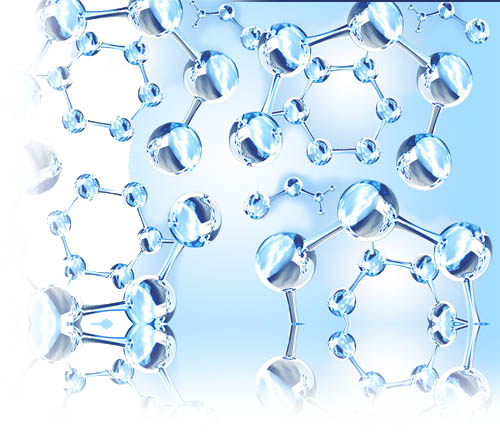

Hyaluronic Acid (Sodium Hyaluronate): sodium salt of hyaluronic acid, a polysaccharide with a high molecular weight. The molecule, which is used synthetically today, was originally obtained from the bacterial fermentation of roosters' crests. The molecule is naturally present in the body (in connective tissues) and constitutes the largest part of human skin's fundamental substances, which, like a gel, binds collagen and elastic fibres together, giving the skin strength and "barrier protection". Hyaluronic acid's main function is to bind a large number of water molecules, ensuring the skin's hydration.
Thanks to its high affinity for water, Sodium Hyaluronate is used as a skin moisturiser. In fact, when applied to the skin, it forms a thin film that keeps it smooth and moisturised. Finally, the smaller molecules are able to penetrate subcutaneous layers, conferring firmness to the tissues and causing a temporary filling and smoothing of small wrinkles.
Artificially produced Hyaluronic Acid is identical to its natural state, thus it does not create any problems with allergies. It is also used in medical and aesthetic fields as an aid with wrinkles and blemishes, and in orthopaedics to lubricate and protect joints.